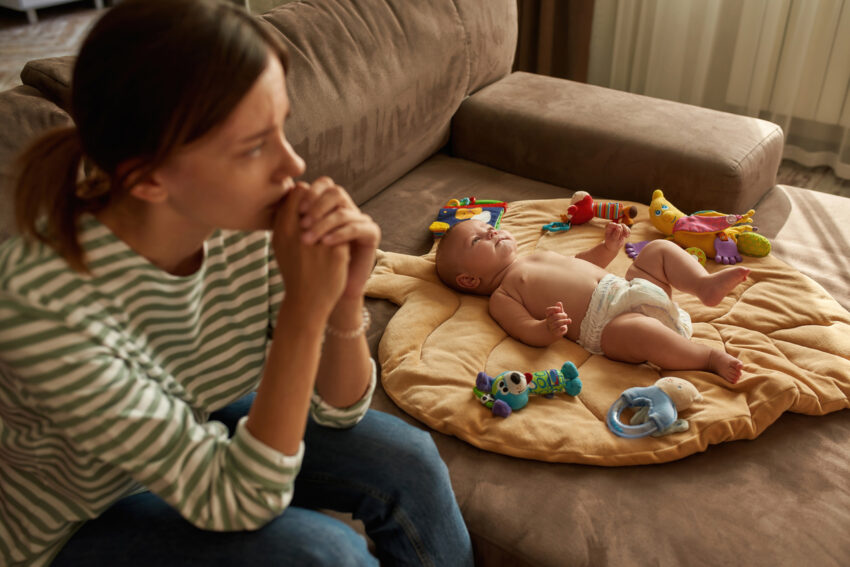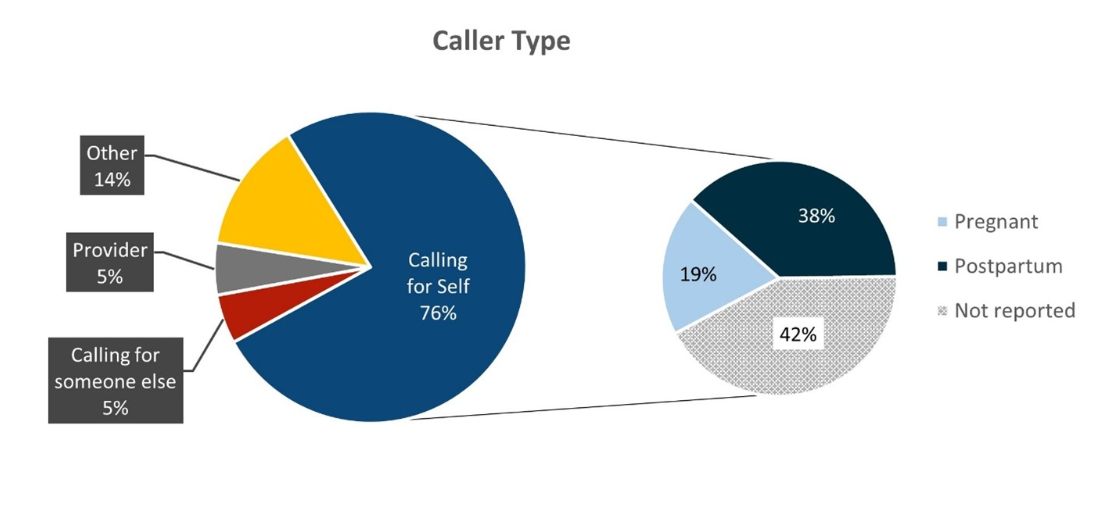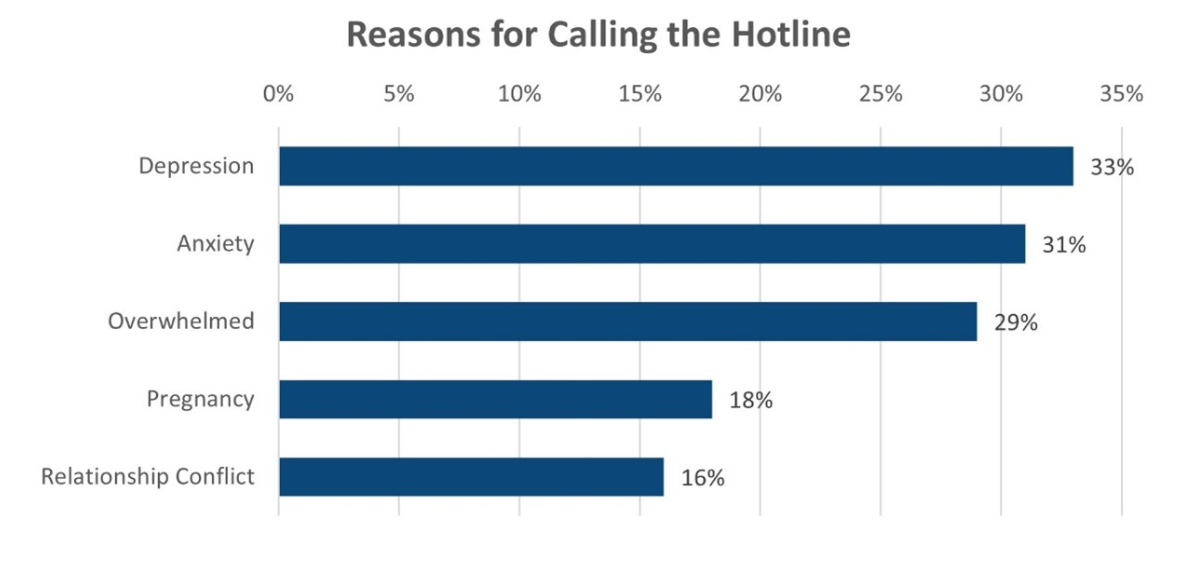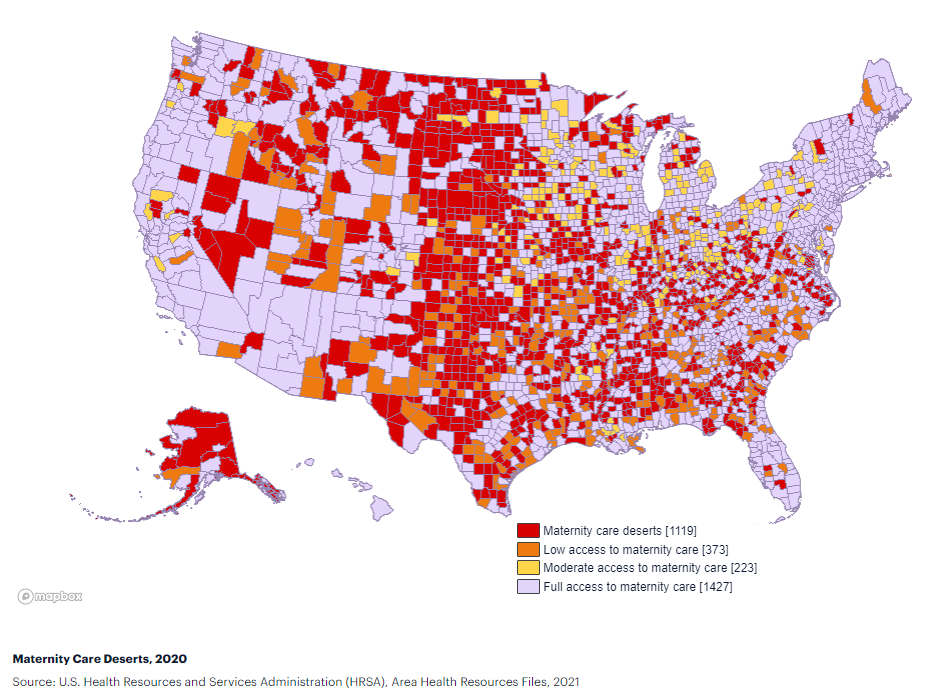
Share On Social!
Motherhood can be an exciting time full of new experiences and cherished moments – but it can also be mentally and physically taxing.
That’s why the US Health Resources and Services Administration (HRSA) created the National Maternal Mental Health Hotline, which celebrated its first anniversary on Mother’s Day 2023.
Let’s explore how and why the hotline was used in the last year, and why the hotline is vital for supporting Latinas and all mothers.
About the National Maternal Mental Health Hotline
The National Maternal Mental Health Hotline is a free, 24/7, confidential hotline that provides support to women before, during, and after pregnancy via phone call or text.
The hotline can be reached at 1-833-TLC-MAMA (1-833-852-6262) and is well equipped to handle a variety of concerns in up to 60 languages, including Spanish.
More than three-dozen culturally competent nurses, doulas, and lactation consultants make up the hotline’s team of counselors.
When women and loved ones call or text, these counselors provide real-time support and referrals to local resources, telehealth providers, and support groups.
Who Used the National Maternal Mental Health Hotline Last Year?
In its first 11 months, the hotline provided support to almost 12,000 pregnant and postpartum women and their loved ones, according to HRSA.
Hotline users primarily called for themselves (76%), while a smaller percentage called on behalf of someone else.
Of those who sought support for themselves, 38% were postpartum and 19% were pregnant.
Most hotline users sought support via phone call (70%) or text (30%).
No matter the method of contact, hotline users were quickly provided with assistance – within 23 seconds for phone calls and 16 seconds for texts – on average, according to HRSA.
Reasons for Calling the National Maternal Mental Health Hotline
The top five reasons people contacted the hotline were:
- concerns about pregnancy (including breast feeding);
- depression;
- anxiety;
- feeling overwhelmed; and
- relationship conflicts.
Sometimes users expressed concern about multiple issues at once, according to HRSA.

Calls and texts to the hotline came at all hours of the day and night, with conversations lasting a few minutes to more than 45 minutes, hotline counselor Shanna Williams, a doula, lactation counselor, and perinatal mental health therapist in Pennsylvania, told NBC News.
Why Is the National Maternal Mental Health Hotline Needed?
The hotline comes at a time when mothers need it most.
For years, the US has led in maternal mortality rates and pregnancy complications, such as low birth weight, compared to similar developed nations.
These disparities are especially prevalent in women of color, such as Black women and Latinas, and in rural areas with maternity care deserts. While maternity care deserts scatter the US, some states are worse than others, such as Texas, which has a 40.2% Latino population.
As mothers struggle to find affordable, quality maternal care, the US continues to face a mental health crisis fueled by violent tragedies and the COVID-19 pandemic.
As the maternal and mental health crises collide, some women are finding themselves in the middle of the storm.
To make matters worse, maternal healthcare providers continue to miss opportunities to check in on pregnant and postpartum women’s mental health, even though mental health conditions are the leading cause of pregnancy-related deaths, according to a 2022 Centers for Disease Control & Prevention (CDC) report.
“Pregnancy and a new baby can bring a range of emotions. Many new moms feel overwhelmed, sad, anxious, or exhausted at different times during their pregnancy or after the baby is born,” according to HRSA.
The challenges of motherhood and lack of support for maternal mental health makes resources like the hotline critical. According to hotline users:
“The hotline helped calm the storm before it turned into a hurricane.”
“I suddenly don’t feel like I’m drowning. I’m going to be okay. I hope people understand that it does help.”
“You’ve made me feel heard and that there’s hope for me.”
New mothers, or those supporting them, should reach out to the hotline if they need any kind of maternal support – even if it’s just for a listening ear.
“There’s help and there’s hope, any time of the day or night,” Wendy Davis, executive lead of the hotline, told NBC News.
The National Maternal Mental Health Hotline is not a crisis line. If you are in suicidal crisis, please call or text 988 or visit the 988 Suicide and Crisis Lifeline.
You Have Voice for Health Equity
Although the hotline has proven itself a vital resource, more investment in mental and maternal healthcare in the US is drastically needed to improve health outcomes in Latinas and all women.
Officials like President Joe Biden and Vice President Kamala Harris have made addressing the maternal and mental health crises a top priority for the White House.
You can help advocate for health equity for Latinas and all women, too.
Select your county and get a Health Equity Report Card by Salud America! at UT Health San Antonio.
In your report card, you will see maps, data, and gauges to compare health equity issues, including access to healthcare and social vulnerability to COVID-19, to the rest of your state and nation.
You can email your Health Equity Report Card to local leaders to stimulate community change. Use the data in your materials or share on social media to raise awareness.
Get your Health Equity Report Card!
Explore More:
Mental HealthBy The Numbers
142
Percent
Expected rise in Latino cancer cases in coming years



